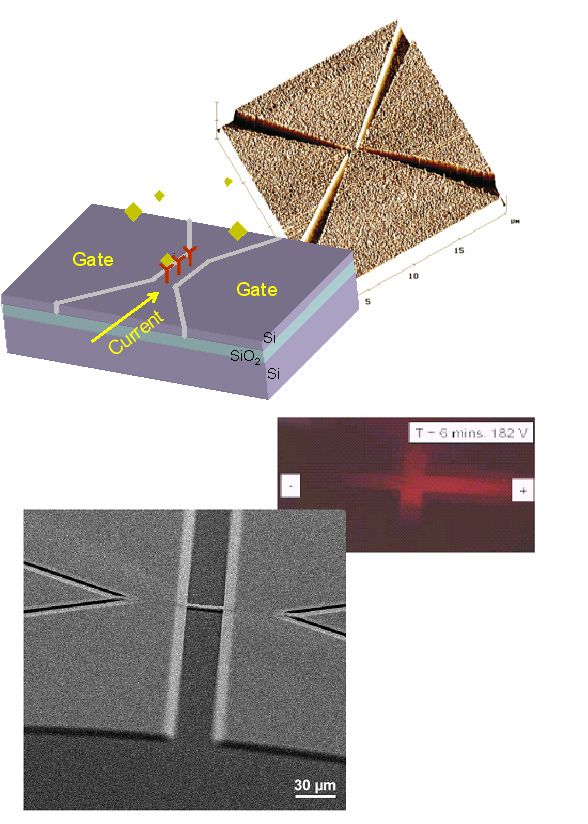Bio sensing based on SOI
We fabricate nanostructured thin-film resistors from Silicon-on-Insulator (SOI) to act as sensitive local probes to surface potential changes in physiologic buffer solution. A SOI substrate which comprises a thin (30 -50 nm) Si layer on top of a buried oxide (100 nm) layer is patterned using nanolithographic techniques like electron-beam lithography and reactive ion etching. The resulting submicron size field effect transistor (figure left) can be operated by using in-plane gates. We investigate the specific surface functionalization of the topmost Si layer with biomolecular recognition sites such as DNA.
SOI substrates with thicker buried oxide are the starting point for microfluidic channel and cavity structures using three-dimensional micromachining techniques (figure right). We investigate these structures for the controlled manipulation and detection of biomolecules in smallest electrolyte volumes (“Lab-on-Chip” concept). Eventually, the concepts of local sensing and microfluidics are being combined. The work is financed by the DFG via Sonderforschungsbereich SFB 563 and in part by the Fujitsu Laboratories of Europe.
